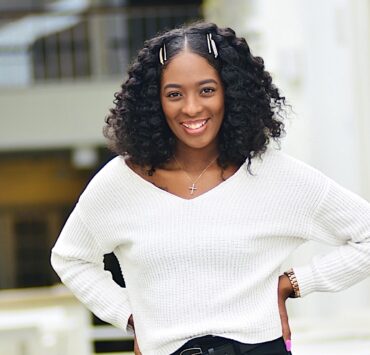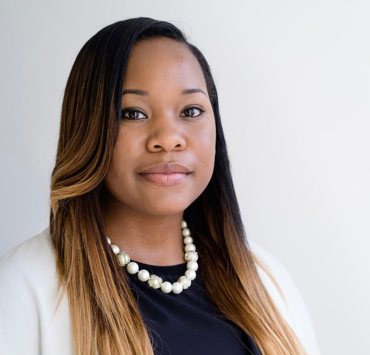By KIMBERLY MARSH
Author & Innovator
1. At the age of 19, you published a book, “The Conversation Starts Here.” It helped you find your own voice. Now a decade later, why is it important to create a business around helping others find their own narratives?
“The Conversation Starts Here” is about a 19-year old black woman in a predominantly white private school here in Tulsa learning about white privilege for the first time. The duality of how I saw myself and how others saw me was very prevalent at the time. I wasn’t raised to see this person as black and this person as white, or this person is naturally against you. The book was about me unpacking those experiences.
2. What did you discover through the writing of that first book?
It began my journey of realizing that some people aren’t racist, they just don’t have a common frame of reference. The book led me to create workshops called Bridging the Miscommunication Gap Between Cultures. I’m continuing that work now with the deTangled series and a new business based on my experiences in life and work.
3. In your first deTangled dialogue at The Greenwood Gallery, you brought in a panel of women and introduced the topic of femininity, followed by a community conversation. What did you learn?
Femininity is one of those topics that’s been coming up in my journey. I felt lonely, isolated and rejected just because I showed up to be the best version of myself. I felt like everyone thought I was bringing masculine energy to the table and they put me in a box of this independent angry, black woman. It was keeping me from my peak performance.
4. So what role did deTangled play?
The power of the deTangled discussion was not the topic. It was about teaching people the tools to detangle what’s true and what’s not. To ask, what am I deciding is true about me? We collectively teach each other. There is a power in all of us. Iron sharpens iron and we are able to create value together.
5. Are you planning to continue these conversations in Tulsa communities?
I’m in conversations about having conferences on topics worthy of discussing, like microaggression. That’s a topic that no one really wants to talk about because who’s to say what’s right and what’s just? Any kind of topic that falls in that gray area is worthy of being detangled so that people can begin to learn. As Americans, we don’t want to open up conversations that we feel are going to create tension. But the thing is, the only way to grow is to experience tension.
6. How do you think tensions can be effectively dealt with in the workplace?
The question becomes how do we experience tensions responsibly, in a safe way? You can’t solve problems without identifying them. It’s important for personal development for these kinds of conversations to happen. But that’s where conversations in organizations become even more critical because a lot of people have the pretense that their culture is just extremely inclusive. If people feel muted and like they can’t actually say what they think and what they believe, then there is no way that people are bringing their full selves to work. So many organizations are living under this false pretense that they’re doing things the right way.
7. How, ideally, would those conversations evolve?
You have to think that when you teach people, when you create safe spaces in an organization for people to have agency and advocate for themselves, with mutual respect, not only does your organization begin to benefit from those things, your bottom line begins to benefit.
People who walk away from your company every day get to benefit, their families benefit, and you start to see a ripple effect that doesn’t just happen in business but in peoples’ lives.
That’s the connection – that’s how you start to change the world by giving all of these people agency.
8. What’s the right way to promote diversity in a workplace?
It’s not about right or wrong. What happens when a manager starts to realize it’s not about right and wrong, it’s about what they learn about leadership; what they learn about how their choices, words or policies are impacting people. The more we focus on right and wrong, we really contradict the balance.
9. Who would benefit most from engaging in these topics?
Managers need these conversations. Employees need this. Individuals need this. Corporations need this. It’s how we start to create positive momentum, whether it’s for financials, for performance or just for happiness in general.
One bonus question: What’s the next step for your business development around personal narratives?
I am scaling these tools and resources for distribution.
I’m very passionate about hosting conversations that bring healing caused by abusive relationships mentally, physically, emotionally, and even career wise. When there is a distance between someone going from hopelessness to hopeful, we have to put agency back into the picture, along with the confidence to activate that agency by advocating for yourself.
FEATURED IMAGE CONTRIBUTED










